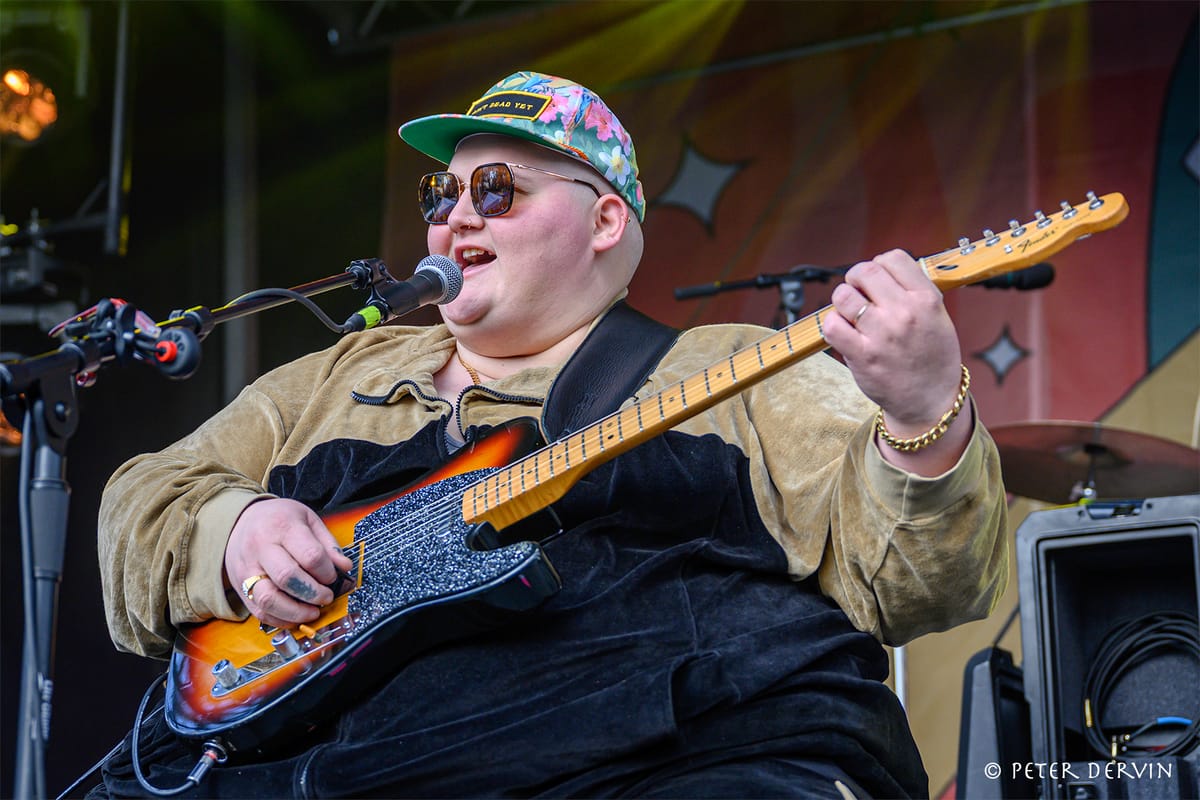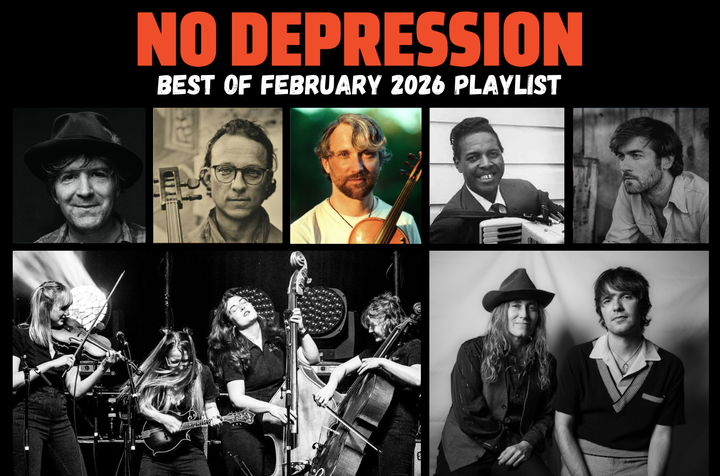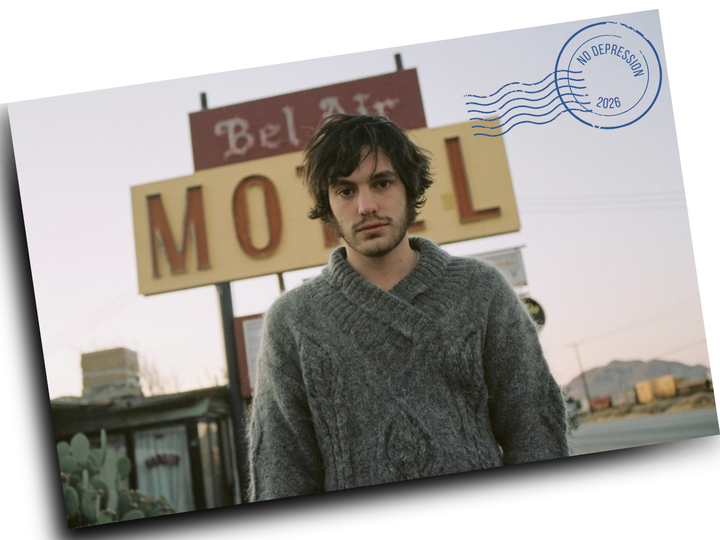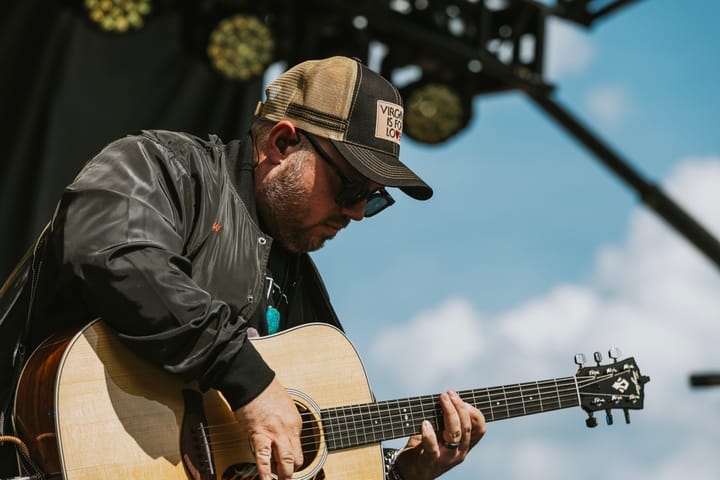Kamara Thomas lives in a comfortable hippie house with guitars lining the walls in an older, wooded Durham neighborhood. She and an affectionate, tiny dog greet me at the door and welcome me inside. Thomas takes mochi from the freezer and leads me out to the picnic table in her carport. The grass is tall and wild, like a nature refuge.
Tomorrow is chemo, which wrecks Thomas for much of the week. Days like today, when she’s at her most recuperated from the intensely toxic medicines that keep her alive, are precious. She’s open and unashamed of her bald head, of the port implanted just below her skin. She savors her mochi.
“This is real chaos. Chaos is the thing that wipes out all your plans and all your possibilities,” Thomas says, referring to her second (and more serious) bout with breast cancer. “This is that idea of life on life’s terms. It's [about] really getting present with my life. It’s about taking each day at a time, which this experience with cancer is forcing me to do.”
Originally the bassist of rock trio Earl Greyhound, Thomas has made conceptual cosmic Americana in Durham for a dozen years. As a key instigator of the Country Soul Songbook, she has worked alongside her fellow musicians and organizers to claim space in roots music for queer artists and people of color (ND review; ND essay). Thomas the musician is still in there — she recently spent several days in a nearby studio collaborating with good friend Chris Leo (of Vague Angels and The Van Pelt) — but the time, energy, and type of music Thomas is drawn to make have changed as cancer comes at her yet again.
I’m in the same world, facing similar chaos. I’m a music journalist, but I’ve also lived with an aggressive form of cancer for eight years. Starting in 2017, when I was 35, chronic leukemia has come for me three times. The most recent was a particularly fast-moving relapse from April through June of this year. More cruelly, my wife is on her second bout of breast cancer since 2018. This time it’s metastatic. I can handle a threat to myself, but not to my other half of 24 years. Not to my best friend, a better friend than I thought could exist. Not to the only person who understands and accepts and somehow loves my entire, messy self.
Sitting at Thomas’ picnic table, I give a wry little half-smile and confess, “I might just be stupid.”
She looked quizzical, needing an explanation. I’d delivered my punchline a little too drily and without laughing: Writing about how cancer changes musicians meant that I’d have to dig into the hard stuff in the lives of roots musicians who, like me, have been to hell. I was setting out for answers, knowing there are none. I was setting out for community, even though I’m already deeply supported by my own. All along, I was poking the same scab, hoping for something other than reopened wounds.
A Clarifying Force
Cancer can be a clarifying force. And the musicians I spoke with confirmed things I needed to be reminded of: Be fair to yourself. Have a little grace.
After an intense slug-out with colon cancer and a frightening misdiagnosis of end-stage lung cancer, Joshua Ray Walker is back to touring again and releasing records like this year’s Tropicana and Stuff, both of which were written during his year-long fight. Walker is also planning his wedding. At 34, he’s here to live.
“What I realized was the life that I wanted was so much closer and more obtainable than if you'd asked me before I was sick,” the road-tested Dallas singer/songwriter says. “Everything is a lot simpler when it's a real possibility you might die.”
It started in fall 2023, when what seemed like appendicitis turned out to be a mass in Walker’s colon. At first, he’d thought all the bad sleep, unhealthy food, and pervasive discomfort of hard touring was catching up with him. In reality, his body was wearing down. By December, doctors thought the mass was local cancer and easily removable. A January 2024 surgery and biopsy, however, revealed more extensive and serious colon cancer. Walker had to wipe his calendar. No tours. No recording. Just chemo and invasive surgeries.
“They ended up having to take, like, a third of my colon and 52 lymph nodes, a couple small sections of small intestine and my appendix, and some other bits and bobs, anything that looked cancerous,” Walker says.
When we talked in September, he was about a year past his first clean scan. He hardly feels like he’s out of the woods, though, which makes sense. Serious cancer sticks with you, mentally and physically.
“It's like, 'I'm okay. Now everything should go back to normal.' But I still felt like shit and I kind of felt this weird pressure from people who are like, ‘Oh, congratulations. You're better. Let's get back to life,’” Walker says.
“It's hard because you feel like shit and you're nauseous [while you’re actively sick]. Going into medical facilities is scary, but everything's very visceral and in your face,” he continues. “Then, when it's over, it takes a lot of time to unpack everything you just went through.”
One August morning I emailed Nat Myers, whose cancer battle started in November 2024 with strange sensations, as if his lungs and ribs were scraping each other. Myers responded almost immediately. Yes. Let’s talk.
At 34, the Kentucky-based blues artist is battling a rare form of sarcoma, a cancer in the muscles surrounding his heart. Even over the phone, he exudes drive and passion — the kind of unbridled living some of us find when we’ve had a too-clear look at the alternative. I cursed the COVID I’d picked up somewhere and the fact that if I’d been more myself, I would have started my recorder. Still, I kept up the best I could.
Myers is meeting a fierce and strange cancer with equal tenacity. A fast thinker and loquacious writer on social media, Myers is applying his impressive intellect to the challenge of his life. He’s had his share of frustrations, such as with doctors with wildly different reads on his options and prognosis. Just as those frustrations neared intolerable levels, jazz pianist Michael Wolff — best known as the bandleader from the Arsenio Hall Show — contacted Myers out of the blue. Wolff, a survivor of a rare but similar form of sarcoma, shared valuable treatment information that led Myers to oncologists at Manhattan’s Memorial Sloan Kettering Cancer Center who are more experienced with his condition.
Like everyone I talked to, cancer has clarified what matters to Myers. He’s prioritizing time with his mother, he reported happily. He still has occasional live dates, including a number of shows with Blackberry Smoke.
I told Myers we would talk again.
A few weeks passed. My lingering COVID turned into background depression. I begged off on deadline, which I never do. By the time I reached back out to Myers, I suspect too much time had passed. I didn’t hear back.
New Vulnerabilities and Unexpected Strengths
By taking on this story, I waded consciously and avoidably into my own mental and emotional messiness. I’m an experienced journalist, but usually there’s distance between me and my subjects. I’m used to writing about them from the outside, which helps me see people more clearly.
We all navigate this ride differently. Sometimes I’m a creature of intense passions, light and nimble and jubilant just to be alive. Sometimes I’m bucked and broken and dragged through the dust. Sometimes I can’t see the light at all.
In late 2021 and early 2022, Thomas’ first bout of breast cancer put her in a philosophical state. It was over relatively quickly, she says, leaving her feeling like she was off the hook. Then, in June 2025, it came back, and it came back worse. Freshly 50, she was already in a crisis of artistic purpose.
“It kind of hit me when I was already down,” she says.
This time it is more of a slog. Long months of chemo treatments that dominate whole weeks. Long days in the infusion chair, too decimated by powerful medicine to do anything but watch “some bullshit on TV.” Long hours in the hospital, too fried to create, but still doing her level best to keep boredom at bay. Long minutes in pain, accepting that the practice of embodiment has nothing to do with our big brains and there is nothing to figure out or learn here.
“Pain puts us in our bodies,” Thomas says.
I’ve been there. I’ve lost track of the blood transfusions, of the close calls. I know what it feels like to teeter between life and death and realize, almost clinically, that I might not see the sun rise again. I’ve waited out weeks of unremitting, indescribable pain. If we make it to the other side, we come out altered.
For Walker, his body’s physical vulnerabilities changed with cancer. He’d lost his power and his ability to fend for himself. It took a weird mental toll that he wasn’t expecting.
“I've always been a bigger guy. It's part of my personality. Not just overweight big, but I've always liked being strong, being capable,” he says. For the first time in his life, he wouldn’t be able to defend himself if he got jumped. He’s having a hard time accepting the change.
During Walker’s colon cancer treatment, when he was misdiagnosed with end-stage lung cancer, he briefly believed he had two to five years left. Even though it turned out untrue, he walked away with the clarity and perspective that only comes from the believable threat of your own death. With the help of his deeply supportive fiancée, he identified what was most important in his life. Somewhere along the way, his inner critic went silent.
Beachy country record Tropicana and its experimental art-folk cousin Stuff are two of three albums that deal with Walker’s cancer and treatment. Together, Walker and his best friend and producer John Pedigo wrote more than 40 songs with no outside creative input. Walker’s new found perspective, too, means balance. He’s spending more time with his mom and he’s engaged to his best friend.
“I don’t plan on limiting myself anymore,” Walker says. “I have a million ideas of things I want to put out. None of them are necessarily in the genre. They’re all over the place.”
Silence and Noise
Thomas falls asleep to night sounds, her windows open to the North Carolina woods.
“I like the darkness,” she says. “I like resting.”
In the morning, she wakes to the cawing and cackling of a murder of crows. She’s drawn to quiet. She’s drawn to nature sounds.
Now that she’s learning her chemo rhythm, she may start rehearsing more with her band Aquarian Devils, although she needs to consider her compromised immune system first. What Thomas can do, even on chemo and recovery days, is write. So she’s been working on a songwriting memoir and a Substack.
She laughs often and honestly. She smiles frequently. And her love of peace and quiet is increasingly balanced by an abrasive, noisy counterpart.
“I've been listening to a lot of Black Sabbath and Stooges and then, to chill me out, I'll listen to Beverly Glenn-Copeland,” she says. Mainly, though, Thomas is increasingly drawn to “the dirty stuff, the raunchy stuff, some gloom and doom.”
When Thomas and I first met, it was for a 2013 INDY Week interview. Then, she was the former bassist of a rock trio who had just released her first Americana album. She was a new mom, new to North Carolina, bright-eyed and excited for the future. Now, a dozen years and two cancers later, there’s a subterranean river of fury beneath her cheerful exterior.
“I’m ready rock again,” she says.
So on September 26, the first night of Durham Pride, Thomas took the stage at CCB Plaza in the heart of downtown Bull City. She brought a chair and, for the first time, no guitar. She had rested all day and, after the 35-minute set, would have to go right back to bed.
Simultaneously liberated and exhausted, Thomas crawled around the stage during the set, summoning a rock star performance from her chemo and cancer-wracked form through sheer force of will. She knelt, out of breath, replenishing her energy before she could rise again. She left everything on the stage.
“I felt more free, more out of control, like I was part of something instead of a leader," she says of leaving her guitar at home and putting all of her being into a frontwoman performance. “I was the one connecting on behalf of our group.”
She’s been through a lot. We all have. Thomas still has months of chemo left. She and I don’t talk about the future past that. People with cancer often don’t.
Meanwhile, Walker is finding his footing after colon cancer interrupted his early 30s. Trauma reveals itself in strange ways and moves slowly. He knows he’ll be processing this for a long time. And Myers, fiery and passionate and emotionally honest, is on his feet and playing shows and living fiercely with cancer wrapped around his actual heart.
The future is unwritten, I remind myself when I’m afraid. My wife’s metastatic breast cancer is kept at bay by advanced medicine. I’m going back into the hospital in November for a stem cell transplant, commonly called a bone marrow transplant. It could cure me. It could kill me.
My wife and I wake up every morning in most people’s worst nightmare. Yet, we live in a way that doesn’t reflect all that darkness and shit luck. Our friends know our situation, of course, but what they see is a couple more deeply in love every year and a family that always chooses fun over worry or stress. We have good kids. We live in a great little town and have genuine friends. Most importantly, we have each other.
Still, we don’t lose sight of how bizarre our situation is. We are deeply, structurally damaged any way you look at it. Mentally, I do pretty well. I’m more optimistic now than before cancer. I’m not spiritual or religious at all, but I have total faith in our chances. Still, the only things that bring me true calm are physical — holding my wife, riding my longboard fast enough to need total concentration, or getting in a full-body laugh while my funny little family riffs on something together.
When Walker was in a similar place of liminal time, he also reached a certain clarity. “I feel pretty sure about the things that I figured out while I thought that death was pretty imminent,” Walker says. “It really all boils down to, I want to spend as much time doing what I like to do with people that I enjoy.”





Comments ()